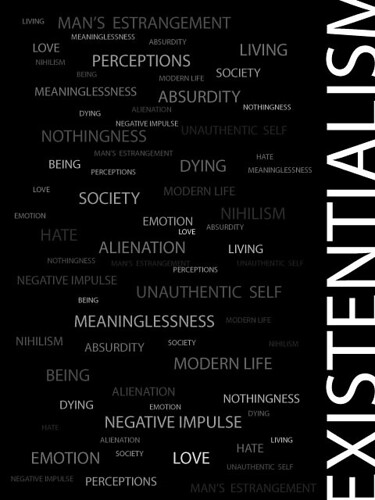Existentialism was first brought forward in the early 18th century by the young French philosopher Jean-Paul Sartre. In La Nausea, Sartre’s manifesto to existentialism, he affirmed his thoughts on the theory that there is no higher being connected to the creation of the human race, but rather we are alone, fully responsible for our own actions. "We are left alone, without excuse".
From there, the theory of existentialism expanded. Philosophers brought forth their individual outlooks on the idea, expanding the definition that existentialism is “A philosophy that emphasizes the uniqueness and isolation of the individual experience in a hostile or indifferent universe, regards human existence as unexplainable, and stresses freedom of choice and responsibility for the consequences of one's acts.”
No theory has been disavowed or demoralized, but no theory has been proven as the correct answer. It all varies on the beliefs of any individual person and what they believe to be correct.

It's interesting that the theory of existentialism was officially recognised not so long ago, while the concept of existentialism is really timeless. The idea of living life according to what you believe is right seems to only be hindered by an intermingling society and conformity. People seem to have destroyed existentialism through their interdependence, and even though it once existed, it's hard to say if a true existentialist can exist today whilst entangled in this modern interconnected society.
ReplyDeleteI find that in many of the actions I take, I am trying to gain the favor of someone else, often ending with me changing my attitude or behavior around certain people. Existentialism, although I believe is still alive today, is definately harder to come by. The human race has taken on the process of fallowing people they consider their superior, leaving the human race more dependent on others rahter than their own personality.
ReplyDeleteIt does seem that people conform to one another's ideas not so much in agreement, but in acceptance in order to feel acceptance of sorts. It's kinda like an adaptation in a way?
ReplyDeleteIf existentialism wasn't proven to be a theory then why do people still acknowledge it and take time to learn about it?
ReplyDeleteI think it's something of a way of life, a conscious one that people really strive to live
ReplyDelete